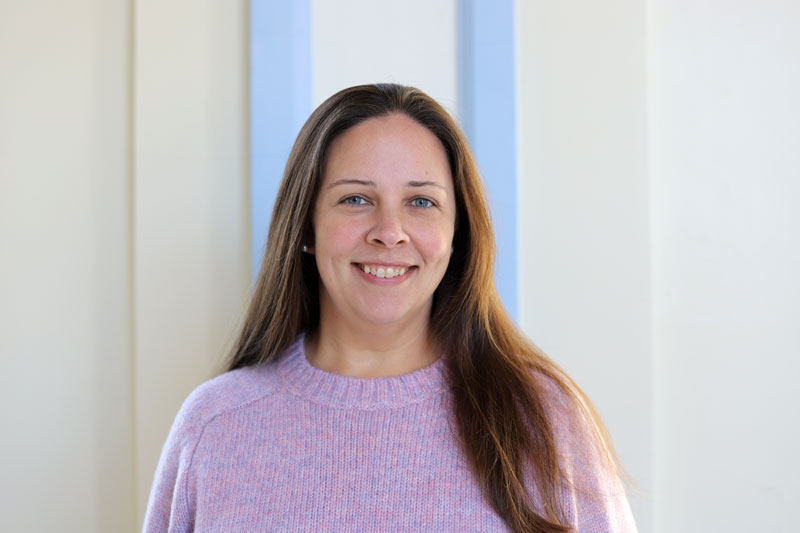
During Jessica Knier’s first year as assistant principal of Charles F. Patton Middle School in Unionville-Chadds Ford School District four years ago, everything was “normal.” After COVID-19, everything changed.
“Every little thing changed…from coming in person to how we graded students and the assignments we could give,” she said. Knier also acknowledged the mental health impact on the students, teachers and staff. She used these experiences to inform her doctoral dissertation for the Ed.D. in educational leadership she earned this spring.
Knier’s dissertation focused on the challenges middle school students encountered during the COVID-19 pandemic. “Dr. Jessica Knier’s dissertation was insightful, thoughtful and eloquent,” stated Melissa Reed, Ed.D., chair of Immaculata’s Education Division and Knier’s dissertation chair. “She provided a platform for students to convey their coping strategies during this unprecedented event. Dr. Knier worked tirelessly to provide her school community with research to support trauma-informed practices to support her students.”
Struggling to select a topic for her dissertation—oscillating between various subjects—Knier wanted to find something she was passionate about. When her students began to come back to in-person classes last winter, she noticed the real impact that the pandemic was having on them. She admitted that the school was struggling to help these children.
She spoke with her superintendent, a former counselor, to discuss options. He noted that the pandemic is a traumatic experience and that it could create adverse childhood experiences with lifelong ramifications. After these discussions, Knier had a different perspective on how COVID-19 impacted students from the lens of a traumatic experience. She began to research the pandemic’s effect on children and realized there was little available from the student perspective.
“A lot of the research out there is either looking at how adults or college students were impacted, or it’s asking parents how their children were impacted, which helps. But I felt like we needed to ask the kids,” she says. Knier wanted to know what their experiences were like and to hear it in their own voices.
From her research, she discovered that the biggest impact of the pandemic on children was feeling isolated and not being able to see their friends and extended families. Not participating in sports or other normal activities, such as music lessons, art, dances and other special end-of-the-year social events, added to the isolation.
Knier also recognized that the school children weren’t necessarily afraid of contracting COVID-19 themselves but were fearful that a member of their family would become sick—and a few experienced sickness and even death within their own families.
From the students’ stories, she understood that the pandemic affected each person differently. She also saw how difficult it was for the students to transition from somewhat unstructured virtual learning at home back to the traditional classroom.
“We almost had to re-teach kids how to do school,” she said.
Equipped with information, Knier and the staff at Patton began looking into academic supports and mental health measures that they could put into place to help the students. Mental health counselors conducted risk assessments for struggling students and coordinated counseling and outside resources. Knowing that the students wanted to spend as much time with their classmates and friends as possible, the staff at Patton initiated a recess period after lunch.
“The kids love it,” Knier states proudly. “It’s a really nice, unstructured time for them to just hang out and burn off some energy and be with their friends, so we have recess every day!”
The middle school also expanded its sports, clubs and afterschool offerings and increased tutoring in an effort to support students academically and psychologically.
Knier found many of her Ed.D. classes were directly applicable to daily issues she was encountering. She learned many things in Jeff Ulmer’s human resource class that she uses every day when dealing with staff members. Knier also enjoyed making connections with other professionals in the education field, from teachers to district superintendents.
Although many things did change for school children across the country during the pandemic, the support of administrators like Knier allowed some of these changes to become positive experiences. All the students whom Knier interviewed said they were happy to be back at school—some of them were even surprised by their own enthusiasm!
Knier loves the sixth, seventh and eighth graders at her school. “It’s such a fun age. They’re growing and maturing physically and socially and emotionally in those three years,” she notes.